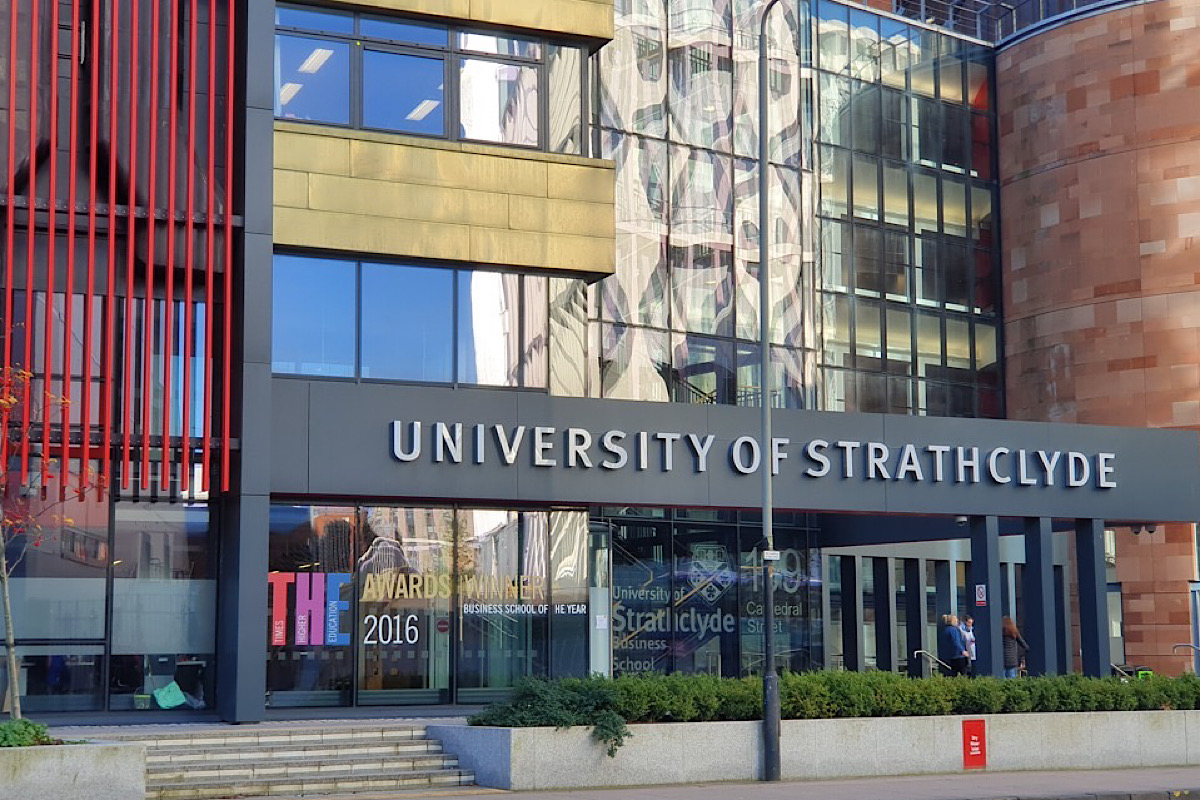This could be a reason for your late-night chocolate cravings
If you have spent nights eating chocolates or ice cream, then 'loneliness' can be the reason behind the binging on sugary items, say researchers.
Guided by its founding principle of “a place of useful learning” and its mission to positively impact the lives of students, society, and the world, the University of Strathclyde in Glasgow launched yet another innovative course on April 6th.

University of Strathclyde (photo:SNS)
Guided by its founding principle of “a place of useful learning” and its mission to positively impact the lives of students, society, and the world, the University of Strathclyde in Glasgow launched yet another innovative course on April 6th.
The new LLM , technology, and innovation course is designed to equip students with a deep understanding of the legal complexities surrounding emerging technologies. This new course addresses the critical intersection of law, technology, and innovation, providing students with practical skills and theoretical knowledge essential for navigating the rapidly evolving landscape of modern legal practice.
The LLM, technology and innovation course uniquely combines legal and technology skills. This course is the first of its kind in the world, and it is taught by subject-matter experts and visiting international scholars.
Advertisement
Developed through discussions with a range of international stakeholders, this programme is understood to be globally unique in teaching technological skills, technology law, innovation, and leadership. It does not require prior knowledge of coding or law. Graduates will have the opportunity to build their own technological projects while gaining an understanding of the law that regulates the design, development, and distribution of technology internationally.
Students will explore legal issues related to innovation and leadership in the context of shifts toward automated decision-making and algorithmic regulation driven by AI, machine learning, big data, and other advances in computing power. There will be opportunities to learn coding languages and gain a better understanding of algorithmic bias. Elective modules cover a wide range of topics, including coding for lawyers and legal applications, statistics and machine learning for lawyers, cyber security law, the economics of digital markets, human rights and digital technologies, etc.
The LLM, technology, and innovation course may be completed over one year (full-time). Upon successful completion of six modules and a summer project, students will be awarded the LLM degree. The summer project options include a dissertation, internship, consultancy, enhanced research proposal, or coding project, allowing students to tailor their learning experience to their interests and career goals.
An analysis of the 2014 Research Excellence Framework (REF2014) conducted by the Times Higher Education, along with the growth in the scope and scale of this university’s research collaborations, positions it among the top 20 research-intensive universities in the United Kingdom. Consequently, it is undeniable that Strathclyde students will benefit from the university’s innovative and practical educational experience, which is enhanced by its integration with its research capabilities, high-quality academic resources, and an unparalleled industry engagement program.
Students have the opportunity to apply to do an internship or consultancy as their summer project, in preference to a dissertation. They will spend a minimum of 100 hours working for or embedded with an external organisation; specific arrangements will vary depending on the needs of the external organisation. Students have the opportunity to build basic technology projects in the technological modules, and can then go on to build a more advanced technology project as their summer project in preference to a dissertation. Furthermore, courses have been redesigned to focus on collaboration and working with industry, government, and the third sector to ensure innovation and knowledge exchange—the fundamental activities that deliver tangible impact.
A first- or second-class honours degree, or overseas equivalent, in law or any other discipline is required to be eligible to apply for this course. Other qualifications may be accepted where the applicant has relevant work experience. Please note that a law or computer science degree is not required for entry into this programme.
The fee for international students joining this course is £21,700 for 2024 -2025 . International applicants are eligible to apply for the Humanities & Social Sciences Postgraduate Taught International Scholarship, further enhancing the accessibility of this unique course. The value of the scholarship is £4,000 – £5,000. Prospective students are required to secure an offer for a full-time, postgraduate taught degree program commencing in the 2024-2025 academic year as a prerequisite for their scholarship application to be evaluated.
For application to the Humanities & Social Sciences Postgraduate Taught International Scholarship, visit – https://www.strath.ac.uk/studywithus/scholarships/humanitiessocialsciencespostgraduatetaughtinternationalscholarship/
It is also noteworthy that Strathclyde University has been recognized with numerous accolades, including the Scottish University of the Year 2024 in the inaugural Daily Mail University Guide, the Sunday Times Good University Guide Scottish University of the Year 2020, and the Times Higher Education UK University of the Year 2019. Moreover, the university was awarded the Queen’s Anniversary Prize for Higher and Further Education in 2020 for its exceptional contributions to energy innovation and in 2022 for its achievements in advanced manufacturing.
For more information about the LLM, technology, and Innovation course and how to apply, visit – https://www.strath.ac.uk/courses/postgraduatetaught/lawtechnologyandinnovation/
Advertisement